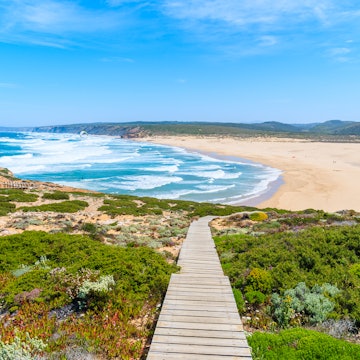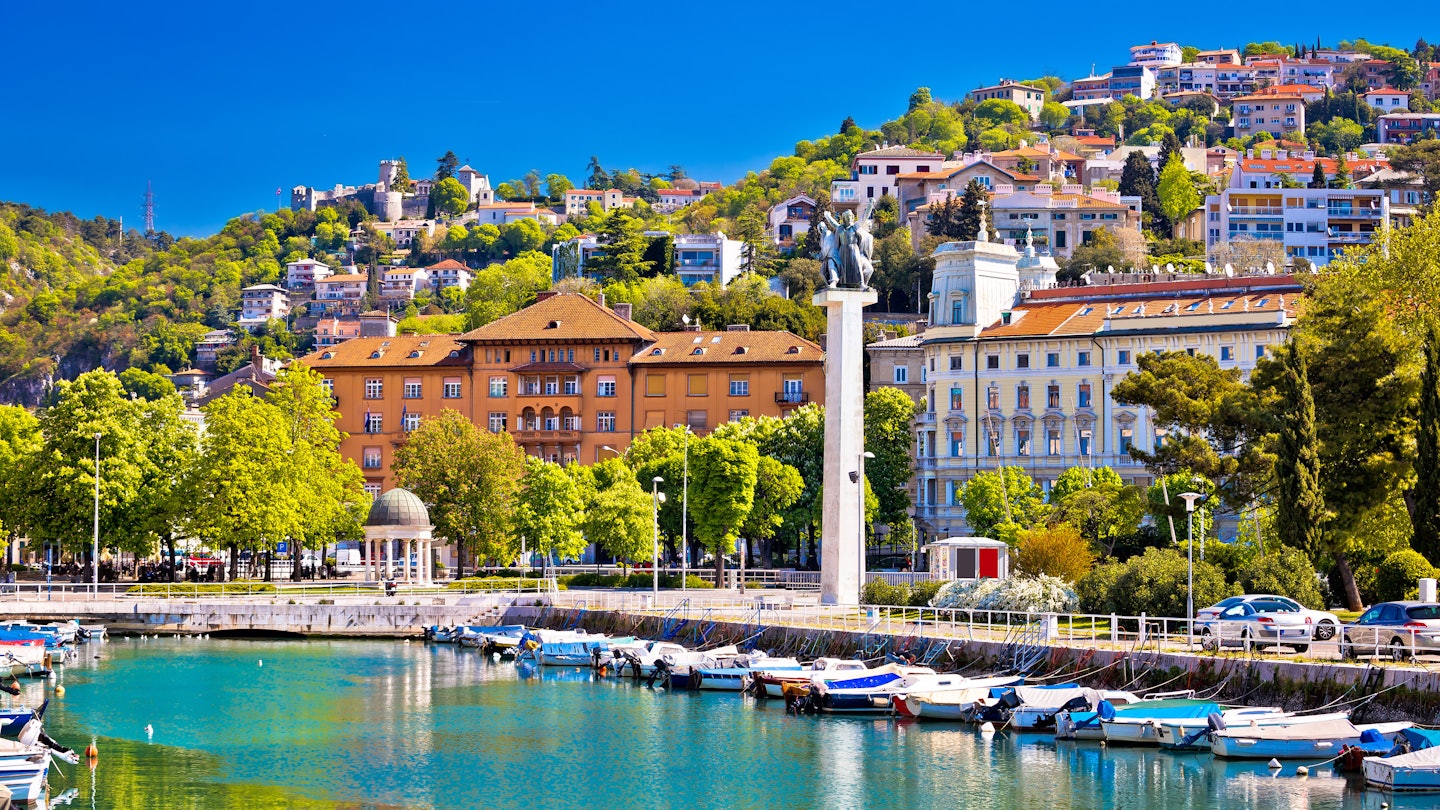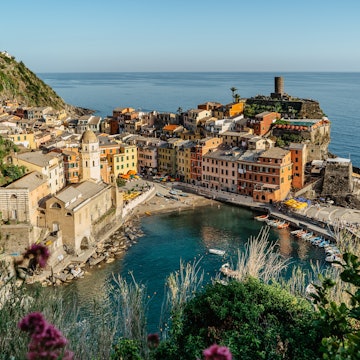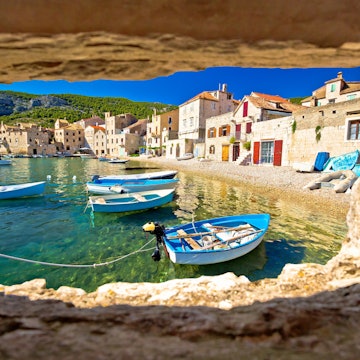

Squeezed between sophisticated Istria and scintillating Dalmatia, Croatia's Kvarner Gulf suffers from middle sibling syndrome, never quite getting the attention it deserves. That looks set to change with its principal city, Rijeka, chosen as a European Capital of Culture for 2020.
This rough-edged port city has its charms, but it’s not the only highlight of the gulf. Scattered around the mountainous hinterland and myriad islands are ancient walled towns, medieval churches, mysterious castles, beautiful beaches, top-notch restaurants and important wildlife reserves.

Find the architecture of Trsat Castle
Rijeka’s most intriguing attraction is this 13th-century Frankopan fortress perched high above the city. It was given a makeover in 1824 by an Irish-born count serving in the Austrian army, who introduced elements of Biedermeier design and an Ancient Greek-inspired family mausoleum guarded by basilisks (now used as a gallery space). The views from the ramparts are exceptional, stretching over Rijeka and out to the gulf islands. While you’re up in Trsat, check out the nearby Our Lady of Trsat Church, which is a minor Catholic pilgrimage site owing to a medieval tale of mystical removalists. It’s said that the angels bearing the Madonna’s family home from Nazareth to Loreto in Italy paused here for a few years before continuing on their way. For the full pilgrim experience you can walk to Trsat from the centre of Rijeka via the 16th-century Petar Kružić Stairway, a historic route lined with small chapels.

Taste the best of Volosko
Nestled on the mainland between Rijeka and the Austro-Hungarian-era resort town of Opatija, this relaxed fishing village has in recent years developed an unexpected reputation as one of Croatia’s culinary hotspots. Unsurprisingly, seafood is the main focus and the influence of nearby Istria is apparent in the fresh truffles, high-quality olive oils and wild asparagus that make their way into many of the dishes.

Go wild at Učka Nature Park
Providing a rugged backdrop to the western end of the bay, this nature park stretches out over 160 square kilometres of mountains and a high plateau. Despite its prominence on the horizon, it’s often overlooked by visitors to the region. You might spot golden eagles, kestrels, peregrine falcons and eagle owls cruising the thermals of the magnificent Vela Draga canyon, while brown deer, wild boar and roe deer lurk in the beech and chestnut forests. Učka is also prime hiking and mountain-biking territory, with eight trails detailed on the park website. If that sounds too much like hard work, you can explore the park in a 4WD on a fascinating and highly educational half-day tour with the local rangers, accompanying them as they go about their work.

Meet the elves of Cres
There’s still a wild side to lush, green Cres, the second largest of the gulf islands with pockets of virgin forest rumoured to be populated by good elves. Ancient stone houses present an austere face to the few intrepid travellers who find their way to tiny, lost-in-time hilltop hamlets like Lubenice and Beli. Both towns have wonderfully remote little beaches tucked away at the base of daunting cliffs; the prospect of having to walk back up the hill tends to keep the crowds at bay. In Beli you can also visit a rescue centre for griffon vultures. Elsewhere, the walled waterfront towns of Cres and Osor are just as enigmatic, filled with Venetian-built churches and houses set on sunny squares.
Enjoy the waterfronts of Lošinj
Separated from Cres by an 11m-wide canal thought to have been dug by the Romans, Lošinj is a long, narrow island with a trio of historic towns and popular beaches. The Lošinj Marine Reserve stretches out to the east of the island, providing a safe haven for the only known resident population of bottlenose dolphins in the Adriatic. You can learn more about the efforts to protect them at the Lošinj Marine Education Centre in Veli Lošinj, a charming town of colourful houses set around a tiny harbour. Even prettier is nearby Mali Lošinj, the island’s main settlement. In summer there’s a palpable buzz to its long, lovely waterfront lined with restaurants, bars and boutique hotels occupying grand old buildings, and an interesting museum in a Venetian palace. Resort-style hotels line pebbly Sunčana uvala (literally ‘Sunny Bay’), where you can check in on the progress of the rehabilitating residents of the Sea Turtle Rescue Centre.

Get happy on Rab
Come summertime, this lovely little island heaves with holiday-makers flocking to its sandy and pebbly beaches. The real treasure, however, is its ancient capital: attractive Rab Town, set on a picturesque peninsula punctuated by a row of four elegant church towers. Although it has been settled since the 4th century BC, Roman emperor Augustus officially declared Rab a city in 10 BC and it came to be known as Felix Arba, or ‘Happy Rab’. The good vibes continue to this day, with summer festivities including gigs by local pop stars, DJs and classical musicians and a medieval-style fair.















